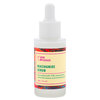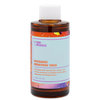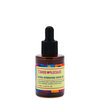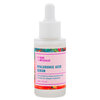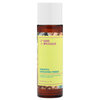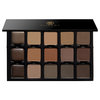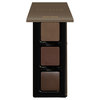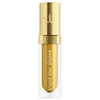
Let's face it, you probably have more makeup, hair, and skin care products than the average gal on the street. But does the amount of makeup you own signify a healthy collection or a hoarder's paradise? "It's not so much the number or volume as it is the behavior around the products," says Sheila Delson, a certified professional organizer specializing in chronic disorganization.
Compulsive hoarding is a physiological mental illness in which people feel the need to excessively collect items and refuse to throw them away. The disorder touches every aspect of a hoarder's life, but the bathroom can become an epicenter because it's so easy to acquire bottles of bath and beauty products. "Hoarders accumulate, and the bathroom sometimes sees the worst of it," says Sheila. "Storage becomes a huge issue—products first flood the counter tops, spread to the corners of the floor, then fill the sink and bathtub." Whether it's the shelf-appeal, the packaging, or the potential bulk discount, the thrill of the purchase serves to fill a psychological need. But when it comes to actual physical use, things quickly lose their luster.
When confronted with the thought of throwing these physical objects away, hoarders have a huge problem letting go. Objects are strongly tied with memory—perhaps a family member wore a scent they can't toss, or that specific lipstick shade was discontinued.
While it's true most typically buy more makeup than they need (what, we can't own 20 red lipsticks?), the reality is that we can only wear so much on a daily basis. "Truthfully, everyone only uses about 20% of what they have. The other 80% doesn't get touched—which is normal—and it just goes to show how much we waste," says Sheila.
But let's take a step back. If you can afford it, there's absolutely nothing wrong with a large and well-loved beauty stash. So what's the tipping point? "When it begins to interfere with the function of everything in your home, it’s a red flag," says Sheila. "Ask yourself these questions: Do I have room to store this? Can I easily access the product? Why did I buy this?" If you're looking to downsize, Sheila recommends reviewing all of your products first, then evaluating storage options second. "Do not purchase storage solutions or products until you've done the actual review work—always containerize last!" After you toss the old makeup and donate the impulse purchases, you'll end up with a collection you love—no matter the size!

Sheila Delson, CPO-CD®, is a New York-based certified professional organizer in chronic disorganization and specializes in neurological learning challenges. For over 18 years, she has helped individuals, families, and small businesses overcome life-long organizing difficulties. She teaches seminars across the country and is an active member of the National Association of Professional Organization (NAPO). She is the owner of Freedomain Concepts, a productivity consultancy.






